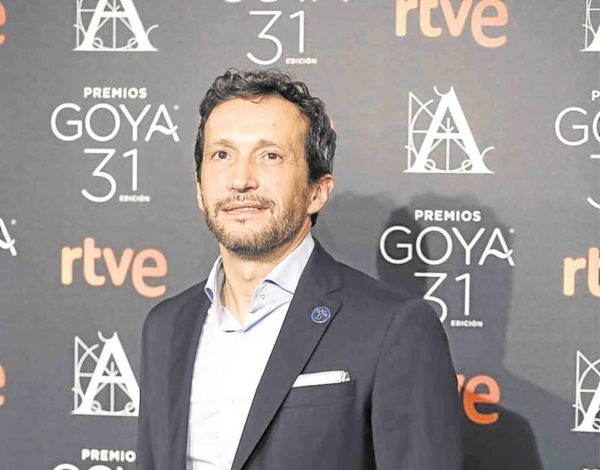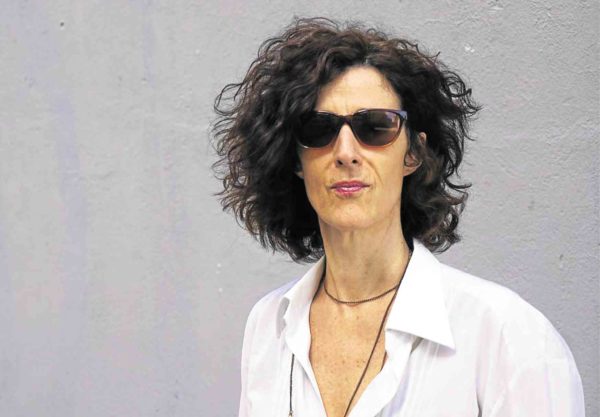Two Spanish directors in Manila

Salvador Calvo
Two Spanish directors flew into town recently for the Pelicula Film Festival, ongoing at Greenbelt 3, in Makati, until Oct. 15. Interestingly, Salvador Calvo and Sally Gutierrez Dewar’s movies cannot be more different (one is a period epic; the other, a contemporary documentary), but both works zoom in on the bonds—historical and cultural—that link Spain and the Philippines.
Calvo told the Inquirer that his debut film, “1898, los últimos de Filipinas,” focused on “ordinary people who are forced to fight in a nonsensical war.”
“It shows the absurdity of war,” he related. “The Spanish soldiers continued fighting a year after the war had ended.” Quite tellingly, the conflict was resolved when the United States “bought” the Philippines from Spain. “It was about money, in the end. Not honor, not patriotism.”
The film’s message remains all the more relevant these days, he said. “Leaders like Donald Trump and Kim Jong-un are playing with fire… [which] could lead us into another world war.” That is why it is all the more vital for people to make a stand because “violence cannot solve our problems,” he asserted.
While making the film, he realized that people then and now were not so different, after all. “It’s like holding up a mirror.”
Article continues after this advertisementHe encouraged today’s youth to continue reflecting on the “forgotten chapters” of our history. “If we don’t learn from the past, we can end up repeating the same mistakes in the future.”
Article continues after this advertisementHe hopes that, in screening the film in Manila, Filipinos would rediscover our common past. “That it would serve as a bridge between our two cultures.”
Dewar’s docu “Ta Acorda Ba Tu El Filipinas?” similarly revisits our historical connection, through the prism of language (Chavacano, in particular).
A regular visitor to the Philippines since 2005, she had been toying with the idea of doing a film on “Spanish colonial remnants in the Philippines, from a critical point of view.”
During a visit to the Mowelfund museum, she stumbled on an old poster of a Spanish film that was screened in Quiapo in the 1950s. “That was the moment this docu was born.”
The docu, she pointed out, “deals with a number of issues that cannot be disentangled from any narrative of the Philippines, because they are inherently there: war, land grabbing, the destruction and rebuilding of communities… and religion, as a colonial remnant.”
She recounted that a Mexican colleague had described her docu as “a tapestry… weaving together overlapping narratives from different geographical and temporal contexts.”
Although she initially had Spanish audiences in mind as her main target, she felt it would likewise be “interesting” to see Filipinos’ reaction to “a film on their country today, read from a re-reading of the past.”
She recounted: “During my research, I realized that if you take a forensic approach, you’d find that language bears the traces of all these issues… all the pain, struggles, injustices… but also of hope, resilience, resistance, community building, the everyday celebration of life. Grammar itself is like a piece of forensic evidence bearing witness to facts that you can’t ignore.”
She emphasized that the docu was “not based on interviews, but on conversations and dialogue.”
She pointed out that her motivation in making docus was “to learn about the people I work with” and this docu proved to be a gold mine because she had the chance to meet “Filipinos [who] have been generous, communicative and passionate about the work that they do.”
